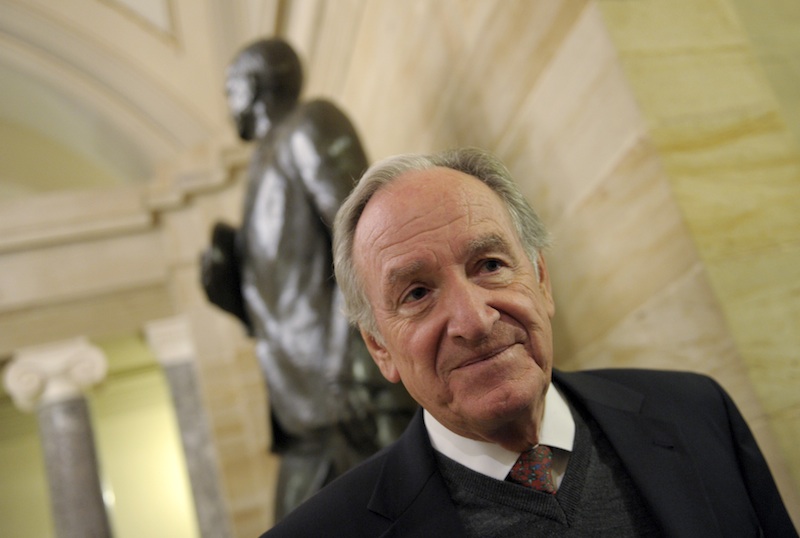Senate Democratic leaders intend to vote this year on raising the federal minimum wage up to $10.10 per hour, a whopping 40 percent jump from its current level of $7.25.
The legislation was introduced by Sen. Tom Harkin (D-IA) and Rep. George Miller (D-CA), the top Democrats on the relevant committees. It would gradually lift the minimum wage and provide for automatic increases tied to cost-of-living changes. The exact timing of a vote is unclear as the Senate expects to have a busy schedule, particularly in resolving disputes and completing the defense authorization bill.
Democrats see the move they see as a political win-win. Either they secure a policy achievement for the middle class, or they force Republicans to vote against a proposal that would, on its face, put more money in the pockets of struggling blue-collar Americans. Multiple polls this year have found strong public support for raising the minimum wage: one USA Today/Pew survey found that Americans favor the idea by a margin of 71 to 26 percent.
“This could put Republicans in a pickle, but it doesn’t have to,” said a Democratic leadership aide. “Increasing the minimum wage has passed with huge bipartisan majorities the last two times the Senate has voted to raise it, and our package will include tax breaks for small businesses. Republicans will have every reason to vote for the minimum wage increase but if they don’t, it will be crystal clear to American families which side they’re on.”
The bill faces a tough slog in the Senate given the GOP’s power to deny an up-or-down vote by filibustering. Republican leadership is signaling opposition.
“A nearly 50 percent hike is going to be tough, especially when the teen unemployment is already 22 percent,” said a senior GOP Senate aide. “We have a lot of job-creation ideas. We’ll see if this is just another political gambit to distract from Obamacare, of if they’re serious soon.”
President Barack Obama supports the bill, which lifts the wage higher than the $9 figure he proposed earlier this year in his State of the Union speech. “The President has long supported raising the minimum wage,” a White House official told TPM, “so hardworking Americans can have a decent wage for a day’s works to support their families and make ends meet, and he supports the Harkin/Miller bill that accomplishes this important goal.”
Even if the bill were to pass the Senate, it would probably dead on arrival in the Republican-led House, which is dominated by conservatives who have ideological objections to the minimum wage. Speaker John Boehner’s (R-OH) office declined to comment for this article, but earlier this year he swiftly rejected Obama’s proposal to lift the wage to $9 an hour, warning that such a change would cost jobs and raise unemployment.
Earlier this year, the White House pointed to multiple studies which found no evidence that a higher minimum wage would harm employment, and cited findings that it would reduce turnover and lead to a more productive workforce.






